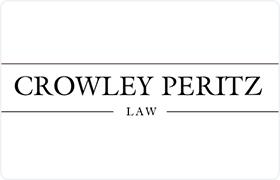Dulles White Collar Crime Lawyer, Virginia
Sponsored Law Firm
-
 x
x

Click For More Info:
-
Crowley Peritz Law
10560 Main Street Suite 501 Fairfax, VA 22030» view mapCriminal Defense Law Over 20 Years Of Combined Experience
Our lawyers are experts in a variety of misdemeanor and felony crimes. We understand that choosing the best criminal lawyer for your case is not a simple task.
800-916-2741
Mary Margret Nerino
Criminal, DUI-DWI, Felony, Misdemeanor, White Collar Crime
Mary Nerino is a practicing lawyer in the state of Virginia who handles criminal cases. She has tried cases in assault, drug charges, domestic viol... (more)
Steve Duckett
Criminal, Felony, DUI-DWI, White Collar Crime
Steve Duckett is a lawyer in the state of Virginia who handles criminal cases. He has tried cases involving assault, drug crimes, DUI, gun charges,... (more)
Lauren Friend Mckelvey
Litigation, White Collar Crime, Banking & Finance, Communication & Media Law
Status: In Good Standing Licensed: 14 Years
Michael C. Sprano
Traffic, White Collar Crime, Constitutional Law, Antitrust
Status: In Good Standing
J. Taylor Monfort
White Collar Crime, Transactions, Complex Litigation, Criminal
Status: In Good Standing
 Matthew Crowley Fairfax, VA
Matthew Crowley Fairfax, VA Practice AreasExpertise
Practice AreasExpertise



